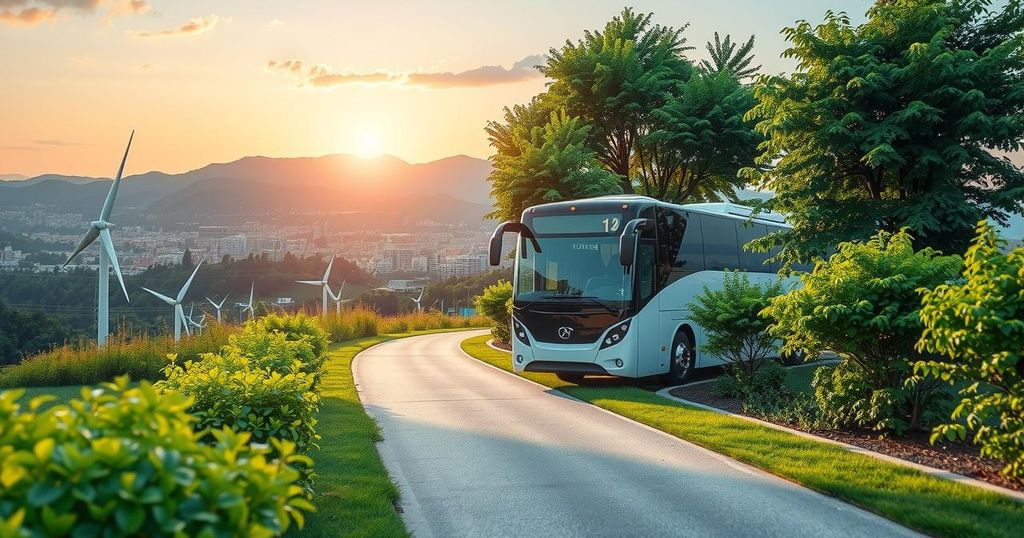Recent Developments in Uzbekistan: Inmate Deaths, Electric Buses, and Tourism Surge

Uzbekistan is launching a project for 200 electric buses to promote a green economy. There have been reports of two inmate deaths prompting investigations. German tourism has increased significantly, with a focus on family and business ties. Work visas for Pakistanis have reopened, and there is a potential $60 million in agricultural exports to Kuwait.
Uzbekistan has initiated a project to procure 200 electric buses along with the necessary charging infrastructure for the capital, part of its “Uzbekistan-2030” strategy aimed at promoting a green economy and achieving carbon neutrality. Yutong Bus was chosen after a competitive bidding among three Chinese companies to deliver an optimal solution for this project, aligning with national efforts to mitigate climate change.
In a troubling development, Uzbek authorities reported the deaths of two inmates within a week in penitentiary facilities located in the Tashkent region. The first case involved a 21-year-old man whose death was attributed to a heart attack and acute pancreatitis, while the second individual, aged 41, died from injuries sustained during repair work at the prison. The Chief Prosecutor’s Office has commenced investigations into both incidents.
Tourism from Germany to Uzbekistan has surged, with over 37,500 visitors recorded in 2024, representing a significant increase of 7,918 compared to last year. The majority of these tourists, approximately 31,291, visited for leisure, supported by additional motivations such as familial connections and business engagements, indicating a strengthening relationship between Uzbekistan and Germany.
In workforce developments, the Uzbek government has reopened work visa applications for Pakistani nationals. Following recommendations from the Pakistan Embassy in Tashkent, authorities lifted a previous ban, aiming to register Pakistani workers for employment in Uzbekistan, which was previously restricted due to concerns over work conditions.
During a diplomatic visit to Kuwait, Uzbek President Shavkat Mirziyoyev explored $60 million worth of export opportunities primarily within the agriculture and food sectors. The Centre for Economic Research and Reforms analyzed the trade potential within the context of the growing economic partnership between Uzbekistan and Kuwait, identifying areas for enhanced cooperation in trade and investment.
In summary, Uzbekistan is experiencing significant developments including a focus on sustainable transportation with electric buses, confronting serious issues in its penal system, a notable increase in tourism from Germany, reopening job opportunities for Pakistanis, and exploring agricultural export potential with Kuwait. These initiatives reflect the country’s aims of fostering economic growth, international relations, and improved living standards.
Original Source: globalsouthworld.com







